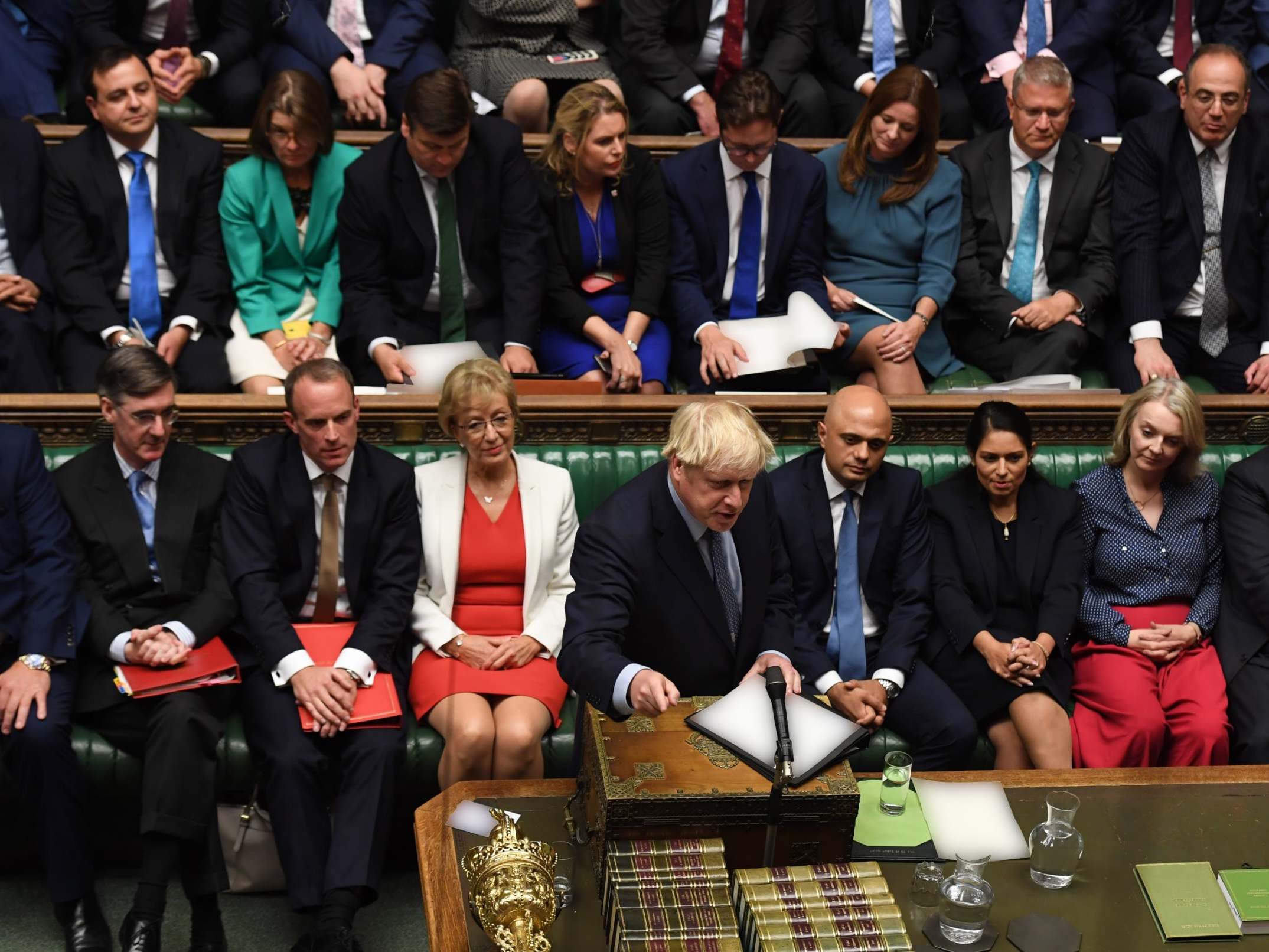Is there a legal loophole that will let Boris Johnson force through a no-deal Brexit?
The prime minister’s confident assertions have unsettled and confused his opponents, writes John Rentoul


John Major has joined the national parlour game of trying to find loopholes in the European Union (Withdrawal) (No 2) Act – the law passed by parliament to prevent a no-deal Brexit at the end of next month.
The game is like a massive multiplayer online brainstorming session run by opponents of a no-deal exit, who are worried that Boris Johnson will find a way around the act that requires the prime minister to agree a Brexit extension if parliament fails to approve a withdrawal agreement by 19 October.
That anxiety is stoked by Johnson, who blithely declares that he will not send the letter asking for an extension, as required by the law, and that he will take us out of the EU, deal or no deal, on 31 October.
This appears to be the trademark Dominic Cummings strategy of saying things that are not soundly based in reality with the aim of driving his opponents beyond reason. In this case, it has the added advantage of convincing them that they must have missed something. Thus the whole of Remainer Twitter is now devoted to amateur constitutional lawyery in search of The Flaw.
As an amateur constitutional lawyer myself, but more importantly as a politics nerd who has been paying attention since Hilary Benn published his bill on 3 September, I am pretty certain that the law is watertight and that Johnson and his chief of staff Cummings are bluffing.
Sir John, in his speech on Thursday night, said: “My fear is that the government will seek to bypass statute law, by passing an order of council to suspend the act until after 31 October.”
No normal person had heard of an order “of” council, as opposed to an order “in” council, which is the Privy Council’s usual way of exercising the royal prerogative on behalf of the Queen.
Apparently an order “of” council is used to make minor amendments to the rules of bodies set up by royal charters. Anyway, the idea that Johnson could suspend an act of parliament is nonsense. A moment’s thought would confirm that a government cannot simply set aside a law with which it doesn’t agree – what then would be the point of parliament?
If Johnson were even to think of such a thing, Lady Hale, president of the Supreme Court, would be on TV declaring it void before the idea had even fully formed in his head.
Benn’s act is tightly drafted, and in the 24 days it has been public no one has found a way around it. It has been suggested, for example, that Johnson might declare a state of emergency; or that he might send a second letter to the EU cancelling the one he would be required by law to send. There are other ideas, but none of them has survived scrutiny by people who really are constitutional lawyers.
Johnson’s insistence on leaving the EU on 31 October “come what may” is bluster. If he hasn’t got a deal through parliament by 19 October, he will have to ask the EU for an extension or resign to make way for another prime minister who will.
Join our commenting forum
Join thought-provoking conversations, follow other Independent readers and see their replies
Comments
Bookmark popover
Removed from bookmarks